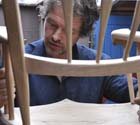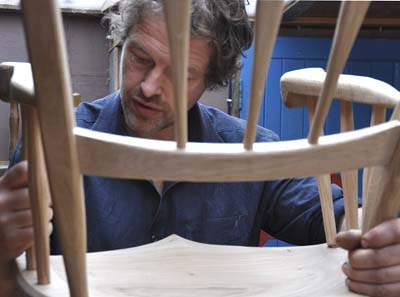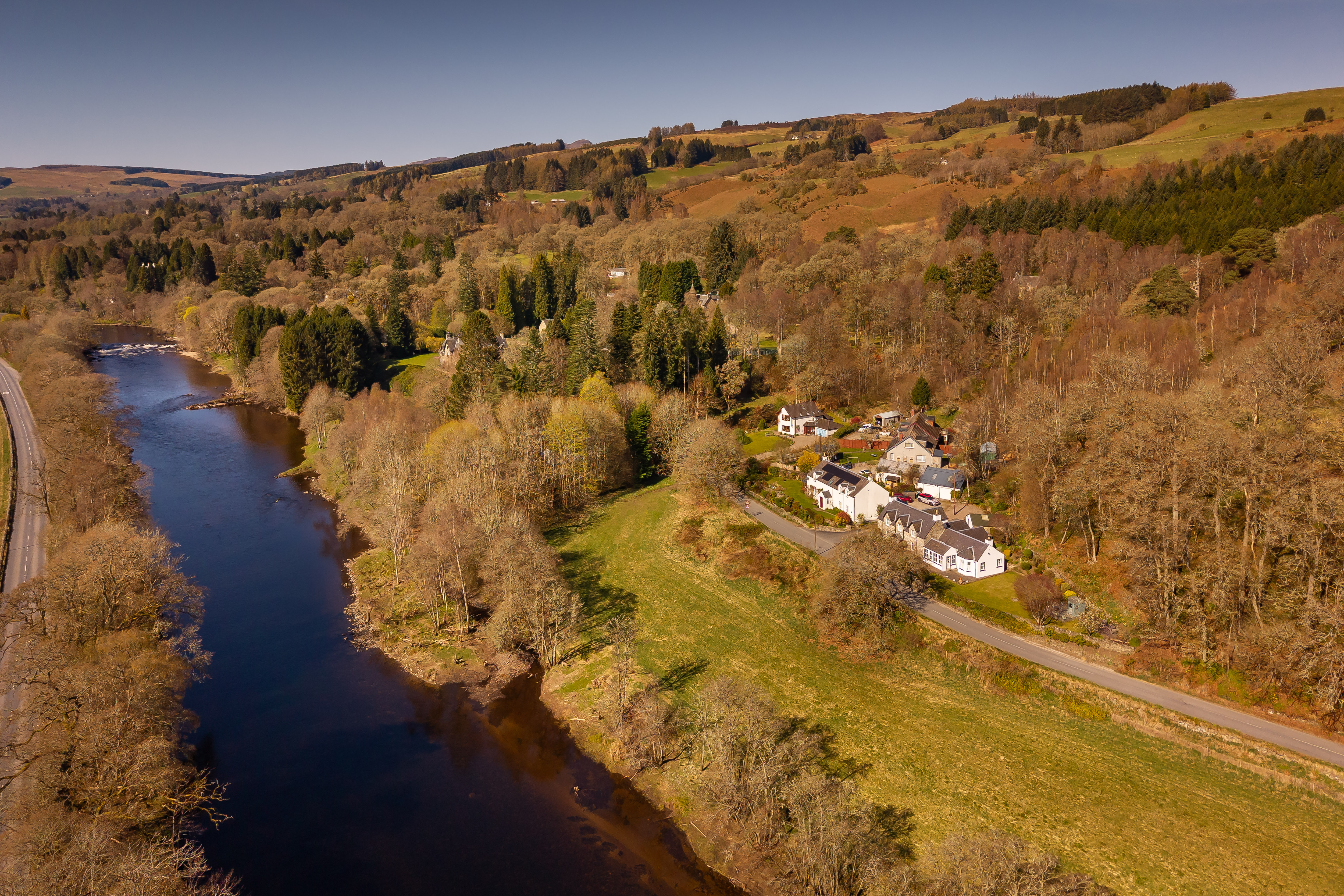Master craftsmen: The Chairmaker
We meet a craftsman passionate about doing things properly, and who produces every single element of his handmade chairs himself


David Saltmarsh confesses to being ‘hooked on chair-making'. The Dorset-based craftsman produces his own version of the Windsor chair, experimenting with the traditional format to maximise both its comfort and visual impact. He discovered his passion almost accidentally although his father was a builder and he was brought up with a close knowledge of wood, it wasn't until a chance meeting with a woodsman that he learnt about the craft of green-wood working. ‘Being in a wood with someone who could explain the proper use of timber, what to look for in a tree and how to work it in the best way was a pivotal moment for me,' he recalls.
Following this Damascene moment, David built himself his own pole lathe (the machine traditionally employed by bodgers to shape the green wood they use for making chair legs). It was a case of love at first touch-he was entranced by this method of turning wood, enjoying the silence and the hands-on experience. Experiments at home and a short chair-making course followed and he was off.
Like a 19th-century painter learning by copying Old Masters, he spent the first five or six years producing copies of Windsor chairs, before starting to develop his own style. All of it was done by hand: ‘I think it's important not to use machinery to begin with. There's a tendency to overlook things with power tools as they make it too easy-if you start off using hand tools, you can then move on to working with power tools in a more aware way.'
Although David may use traditional methods, one important element separates him from the highly specialised craftsmen of the 19th and early 20th centuries: he produces every element of the chair himself, from start to finish. The process begins with choosing a tree from local woods and felling it himself-he enjoys the direct connection with the timber he works and its woodland origins. ‘As a child, I used to see piles of sawn wood delivered to my father on the back of a big lorry-it was fairly industrial,' he explains. ‘Now, I find it really satisfying to see a tree growing in the woods, cut it down and convert the whole thing into a chair myself.'

Ash is his wood of choice. ‘It's a great all-rounder-it looks beautiful, is strong, dries well and lasts for ages.' Understandably, ash dieback is a major concern; David is frightened of its visual and ecological consequences and the potential loss of his prize material presents a serious economic challenge. He knows the implications of these virulent tree diseases, as elm, his preferred material for chair seats, is now sadly very difficult to source. He also uses oak, but, again, this can be difficult to track down locally-a problem that may well be exacerbated by acute oak decline.
Other than the potential problems of sourcing wood, David is upbeat about his profession and its future. He has felt a real revival of interest in traditional crafts as people begin to prize the hand-made and locally sourced over the shoddy and mass-produced. The fact that his chairs are in such demand is proof that he has reason to be optimistic.
Telephone 01297 560755 or visit www.fivepennychairs.co.uk
Sign up for the Country Life Newsletter
Exquisite houses, the beauty of Nature, and how to get the most from your life, straight to your inbox.
* Subscribe to Country Life and save
* Follow Country Life magazine on Twitter
Country Life is unlike any other magazine: the only glossy weekly on the newsstand and the only magazine that has been guest-edited by HRH The King not once, but twice. It is a celebration of modern rural life and all its diverse joys and pleasures — that was first published in Queen Victoria's Diamond Jubilee year. Our eclectic mixture of witty and informative content — from the most up-to-date property news and commentary and a coveted glimpse inside some of the UK's best houses and gardens, to gardening, the arts and interior design, written by experts in their field — still cannot be found in print or online, anywhere else.
-
 Vertigo at Victoria Falls, a sunset surrounded by lions and swimming in the Nile: A journey from Cape Town to Cairo
Vertigo at Victoria Falls, a sunset surrounded by lions and swimming in the Nile: A journey from Cape Town to CairoWhy do we travel and who inspires us to do so? Chris Wallace went in search of answers on his own epic journey the length of Africa.
By Christopher Wallace
-
 A gorgeous Scottish cottage with contemporary interiors on the bonny banks of the River Tay
A gorgeous Scottish cottage with contemporary interiors on the bonny banks of the River TayCarnliath on the edge of Strathtay is a delightful family home set in sensational scenery.
By James Fisher